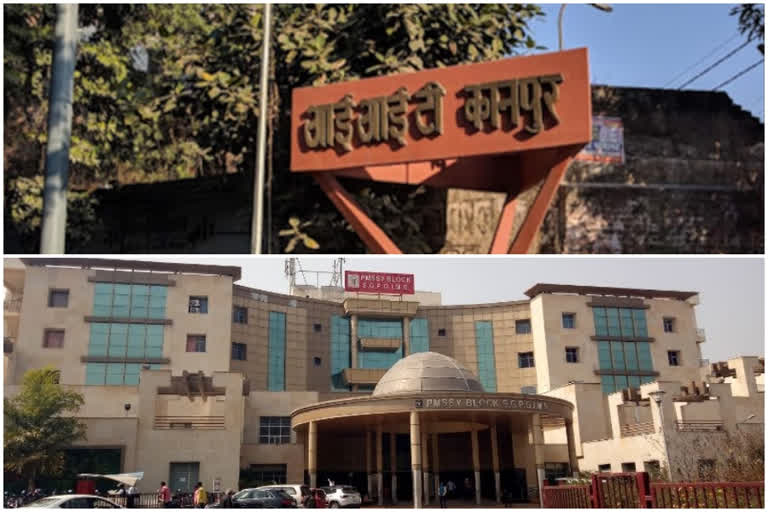Kanpur (Uttar Pradesh): The Sanjay Gandhi Postgraduate Institute of Medical Sciences (SGPGIMS) in Lucknow and IIT-Kanpur have signed an MoU to advance innovation inaccessible healthcare through indigenous solutions.
Under the MoU, the institutes will set up a centre of excellence in telemedicine and healthcare robotics to nurture smart healthcare with the overarching objective of strengthening healthcare systems. The MoU was signed by Professor R.K. Dhiman, Director of SGPGI and Professor Abhay Karandikar, Director of IIT-Kanpur, on Tuesday.
Professor Karandikar said: "Through this initiative, two leading institutions of the country will join hands to uphold their vision of a robust, indigenous healthcare system, focused on promoting interdisciplinary innovation. The MoU is a timely step in the right direction to enable an exchange of ideas across engineering and medicine, as professionals from IIT-Kanpur will receive the opportunity to collaborate with specialized doctors at SGPGIMS, Lucknow."
Through this MoU, IIT-Kanpur and SGPGIMS have agreed to establish a research and development set up for promoting telemedicine aided by Information and Communication Technologies (ICT) and 5G, and point-of-care testing and diagnostics. An integrated network of mobile health vans in rural areas and smart kiosks in urban locales will ensure last-mile connectivity to ascertain the availability of emergency healthcare services.
Read: Covid-19's second wave effect on rural India
Talking about the initiative's vision, Professor Dhiman said: "We will jointly launch courses in various fields of digital health which are not available in any engineering and medical educational institutions in the country at the moment. The current corona pandemic has made telemedicine technology a very popular and useful tool to bridge the gap between care providers and citizens so there is a need to develop indigenous technology platforms and systems on a large scale that can be affordable and made available widely.
"This will promote entrepreneurship and develop a rural health system which can be deployed far and wide to strengthen the health system. The future holds the key for a hybrid healthcare system for which the bond between engineering and medical discipline needs to be strengthened. In that context, the timing of handshake between the two major institutions is appropriate which is going to yield immense benefit to the society."
A telemedicine system is about creating a network of expected beneficiaries and medical experts and integrating them together in a digital platform. A cost-effective platform consisting of hardware sensors and IOT controller devices needs to be developed for collecting patient health data. The system has to be integrated with cloud servers and mobile apps.
Read: Women hit by lockdown make PPE kits to make a living
In this regard, the role of IIT-Kanpur will include the development of such portable IoT enabled health care systems along with point-of-care testing and diagnostics, designing customized mobile vans and kiosks equipped with AI-based diagnostics, integrating multi-lingual avatars with systems to give patients the feel of the presence of a doctor or a caregiver. This would especially be essential for patients with mental health disorders and elderly care.
The SGPGIMS had set up the School of Telemedicine and Biomedical Informatics in the year 2006 with the objective of teaching and training healthcare personnel and clinical engineers' tools and strategies of ICT-enabled health care. It has received a major grant-in-aid from the ministry of electronics and IT, Government of India in 2007 to elevate the school to a national resource centre in telemedicine and biomedical informatics which was continued for five years.
Later, from the year 2007 till date, the facility and trained technical human power has been supported by the ministry of health & family welfare, the government of India to develop and manage the National Medical College Network as the national resource centre. With the collaboration with IIT-Kanpur and the Centre of Excellence, the engineering aspects of clinical application of digital technologies can be addressed.
Read: Need to look ahead, strengthen public health system, says AIIMS director
(IANS)



